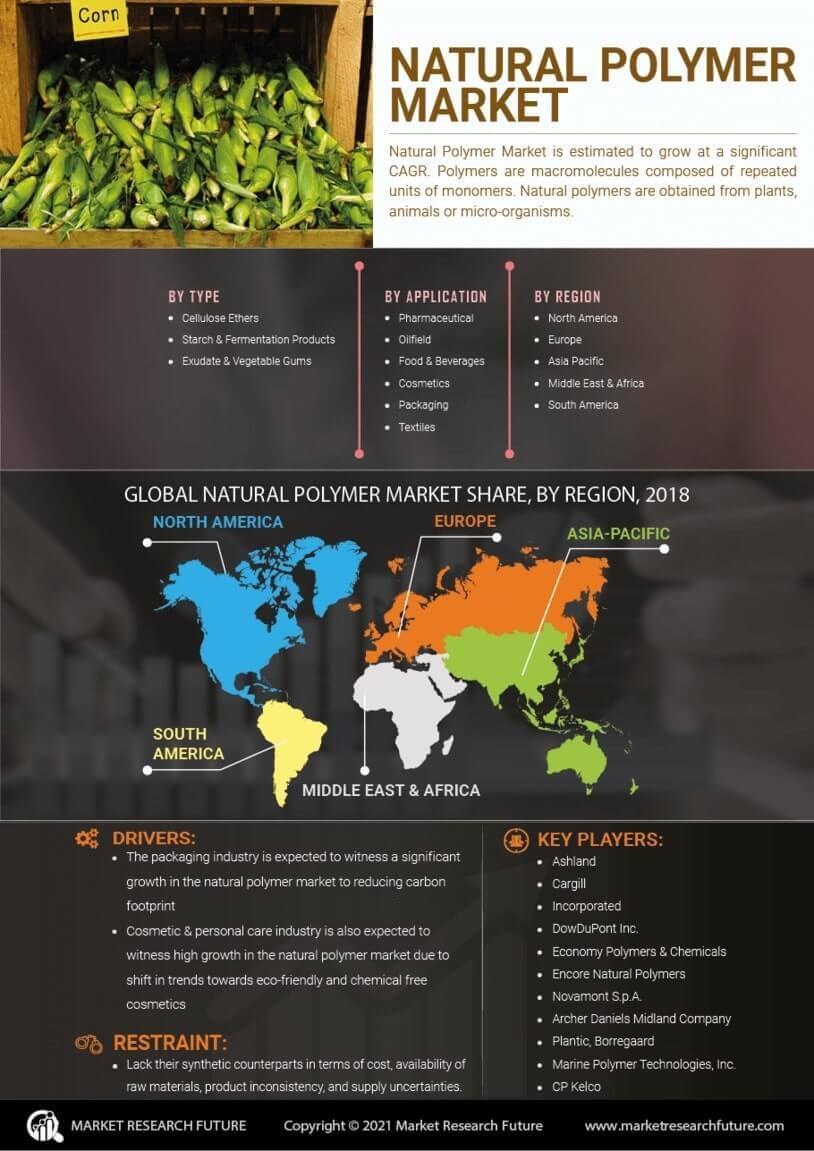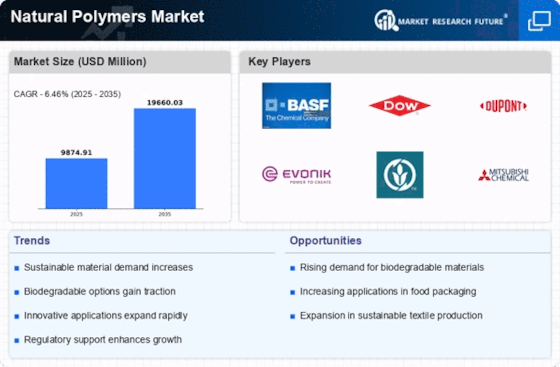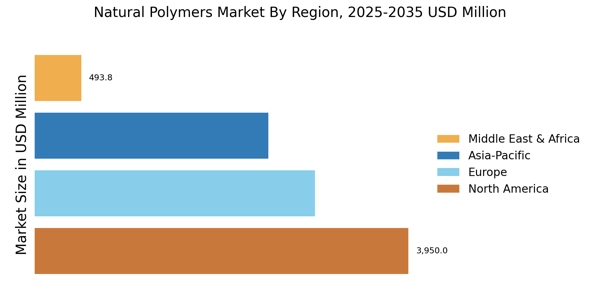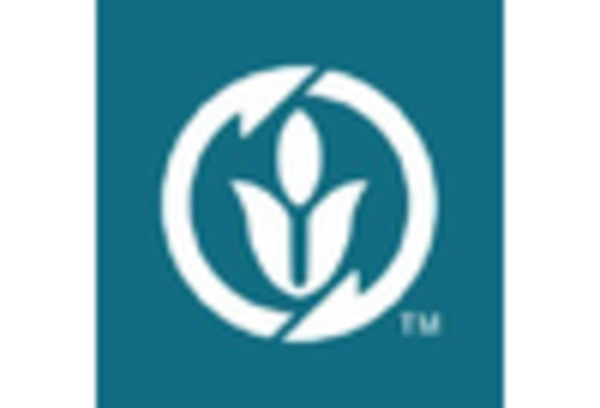Regulatory Support
Regulatory frameworks promoting the use of natural materials are emerging as a significant driver for the Natural Polymers Market. Governments worldwide are implementing policies that encourage the adoption of biodegradable and sustainable materials in various applications, including packaging and textiles. These regulations are designed to mitigate environmental impacts and promote public health. For instance, initiatives aimed at reducing plastic usage are fostering a favorable environment for natural polymers, which are often seen as viable alternatives. Market data indicates that regions with stringent environmental regulations are experiencing accelerated growth in the natural polymers sector, with an expected increase in market share by 10% in the coming years. This regulatory support is likely to enhance the competitiveness of the Natural Polymers Market.
Technological Innovations
Technological advancements are playing a crucial role in shaping the Natural Polymers Market. Innovations in extraction and processing techniques are enhancing the efficiency and cost-effectiveness of natural polymer production. For instance, advancements in biopolymer synthesis are enabling the development of high-performance materials that meet diverse industrial requirements. The market is witnessing a surge in research and development activities, with investments aimed at improving the properties of natural polymers, such as their mechanical strength and thermal stability. This focus on innovation is expected to propel the Natural Polymers Market forward, with a projected growth rate of around 7% annually over the next few years. As industries adopt these new technologies, the versatility and applicability of natural polymers are likely to expand.
Health and Wellness Trends
The rising trend towards health and wellness is significantly influencing the Natural Polymers Market. Consumers are increasingly seeking products that are not only effective but also safe and derived from natural sources. This trend is particularly evident in the food and beverage sector, where natural polymers such as pectin and guar gum are utilized as thickening agents and stabilizers. Market analysis suggests that the demand for natural food additives is expected to grow, with projections indicating a market size increase of over 5 billion USD by 2027. This shift towards health-conscious products is prompting manufacturers to explore natural polymer solutions, thereby driving innovation and growth within the Natural Polymers Market.
Sustainability Initiatives
The increasing emphasis on sustainability appears to be a pivotal driver for the Natural Polymers Market. As consumers and businesses alike become more environmentally conscious, the demand for biodegradable and renewable materials is surging. Natural polymers, derived from renewable resources, offer an eco-friendly alternative to synthetic counterparts. This shift is reflected in market data, indicating that the natural polymers segment is projected to grow at a compound annual growth rate of approximately 8% over the next five years. Companies are investing in sustainable practices, which not only enhances their brand image but also aligns with regulatory frameworks aimed at reducing plastic waste. Consequently, the Natural Polymers Market is likely to witness a robust expansion as stakeholders prioritize sustainability in their product offerings.
Consumer Awareness and Education
The growing awareness and education regarding the benefits of natural products are driving the Natural Polymers Market. As consumers become more informed about the environmental and health advantages of natural polymers, their purchasing decisions are increasingly influenced by these factors. Educational campaigns and marketing strategies highlighting the advantages of natural polymers are contributing to a shift in consumer preferences. This trend is particularly evident in sectors such as cosmetics and personal care, where natural ingredients are gaining traction. Market Research Future indicates that the demand for natural personal care products is expected to rise significantly, potentially reaching a market value of 3 billion USD by 2026. This heightened consumer awareness is likely to propel the Natural Polymers Market, as manufacturers respond to the demand for more natural and sustainable options.


















